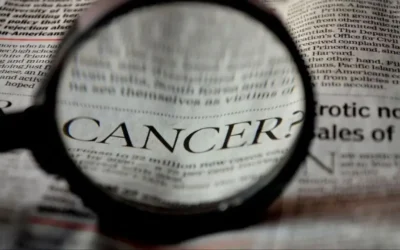Friendship Day: Health experts highlight why `active listening` is important

In today’s fast-paced world, everyone is talking, but very few are actually listening. Being truly heard is one of the deepest emotional needs we all have. Whether it’s a friend going through a rough time or just someone needing to vent, active listening can do wonders for both them and you. If you often find yourself wondering how you can be there for a friend who is struggling, or being supportive in a larger sense, it is key to remember that sometimes, what a friend truly needs isn`t advice, but a non-judgmental space to be heard.
International Day of Friendship is observed on July 31 every year to celebrate the uniqueness of friends. Highlighting its importance, psychiatrists delve into how powerful good listening can be. They outline simple and real tips that anyone can use to become a better listener and a dependable friend.
The nuance of hearing versus listening
What`s the main difference between just hearing someone and really listening to them? According to Dr. Pallavi Joshi, consultant psychiatrist at Manipal Hospital, Varthur Road, Bengaluru, hearing is a passive process we all engage in during casual conversations, where we might hear words without truly processing them.
“In contrast, listening requires an intentional and conscious effort. It involves paying full attention, putting aside your own thoughts for the moment, and focusing on what the other person is trying to say,” she explains. This deeper engagement includes understanding, processing, and even reflecting on what’s been said, like confirming, “Is this what you’re trying to say?” When a friend needs genuine support, they are often looking for more than just someone to hear them; they want a safe space to share, a vent buddy, or simply a human presence that validates their feelings.
Simple ways to show you`re truly listening
Dr. Kanishka Meel, psychiatrist consulting with Practo, suggests, “Simply start with being present, not perfect. You don’t need special training to listen well; you just need to be there.” She recommends techniques like making eye contact, keeping your phone aside, and giving small nods to show you`re paying attention. “Sit in a relaxed but open posture; remember not to fold your arms and never glance at the clock or your watch, as it can reflect that you are not really interested in the conversation. Your body language says a lot,” she advises.
To encourage a conversation, Dr Meel suggests using comforting phrases like “I’m here with you,” or “That sounds really difficult”. Even repeating a few of the words back can make the other person feel heard. “Instead of jumping in with solutions, just hold space and let them talk,” she adds. Gently encourage with prompts like, “What happened then?” or “How did you feel about that?” She affirms, “Believe me, these little things create quite a safe emotional space. Research even shows that this kind of listening lowers anxiety and deepens trust.”
Cultivating the habit of listening first
Many of us want to quickly give advice or fix problems when a friend talks to us. How can we learn to just listen first instead of trying to solve things right away? “It’s a matter of practice and conditioning,” says Dr Joshi. She recommends making it a habit to give people, especially those who matter, at least 20 minutes of uninterrupted attention each day, “That means no phones, no TV, just being fully present.”
She proposes the “15 and 5” method, “Let the other person talk for 15 minutes while you listen attentively, then spend the last 5 minutes reflecting and validating their feelings.” This practice helps resist the urge to rush into problem-solving. “In today’s fast-paced world, we often want to give quick solutions and move on, but relationships require time and patience… It’s not just about fixing the problem—it’s about truly being there,” she adds.
Common listening mistakes to avoid
While listening is important, Joshi points out common pitfalls such as looking at your phone, texting, or getting distracted, that can hamper the process. These actions make the other person feel unheard or unimportant. She also warns against shifting topics suddenly, bringing up unrelated past events, or blaming the person for their problems, which can make them feel worse.
Interrupting is another issue. “It may seem harmless, but it can signal disinterest… Interruptions can also make someone feel their issue isn’t serious.” She highlights the inappropriate use of “paradoxical intention,” where a challenge is issued (e.g., “Okay, go ahead, let’s see how you do it” in response to “I want to die”) in emotionally vulnerable situations.
Joshi also advises avoiding “GOCHI”: Guilt, Over-involvement, Criticism, Hostility, and Indifference. “If someone is opening up to you, don’t feel guilty or overly responsible, don’t criticise them, show indifference, or respond with hostility. Being a good vent buddy means avoiding all of these.”
Understanding “holding space”
Both doctors emphasise the concept of “holding space.” Dr Joshi explains, “It refers to establishing a secure, accepting setting where people feel free to express themselves. It’s a space where the conversation remains confidential and the person speaking knows they’re being truly heard.” The listener gives their full attention, listens actively, and does not interrupt or judge. “In psychiatry, we often call this a `ventilation box` or a `vent buddy`—someone who simply holds space and allows the other to release what’s on their mind,” she clarifies.
Showing empathy without fixing
How can we show a friend empathy without necessarily agreeing with their choices or trying to “fix” their situation? Dr Joshi suggests various simple and supportive ways to show empathy. These include small gestures like cooking their favourite meal or bringing them food, or a gentle touch such as holding hands or a comforting pat. “You can offer to go with them to a mental health appointment, remind them to take their medication, or just check in on how they’re doing emotionally,” she adds. Helping with daily chores, especially during difficult times, is another form of support.
Crucially, Dr Joshi states, “You can be honest and say, `I might not be the right person to solve this, but I’m here to listen,` and guide them to someone who can help. That’s what being a vent buddy is all about—not fixing the problem but simply being there.”
How good listening strengthens friendships and mental well-being
Dr Meel explains, “When someone truly listens to you, it feels like a hug for your mind. It builds trust, closeness, and a sense of being valued.” This positive emotional impact is also scientifically backed. “Studies show that strong social support improves mental health, lowers stress levels, and even helps physical well-being. When we feel seen and understood, our body’s stress hormones like cortisol go down. So yes, good listening is not just emotional support, it`s biological care too!”
When professional help might be needed
“It’s important to recognise when your friend might need more than just someone to talk to,” advises Dr Meel. She lists signs like persistent sadness, no interest in things they used to enjoy, poor sleep or appetite, or talking about feeling hopeless. If these symptoms are present, it might be time to gently suggest professional help.
“You don’t need to solve anything, just show care,” Dr Meel explains. You could say, “You’ve not seemed like yourself lately, and I’m genuinely worried. Have you thought about talking to someone who can help professionally?” She emphasises keeping it kind and non-judgmental, assuring that “your concern will mean the world to them.”
Bringing up therapy can feel tricky, but Dr Meel suggests choosing a calm moment, speaking with warmth, and avoiding labelling their emotions. “Try saying something like, `sometimes it helps to talk to a therapist; they can really offer support in ways friends can’t. I can help you find someone if you’d like.`” She reminds, “asking for help isn`t a weakness. In fact, it’s strength. Offer to help with research or even go with them if they feel unsure.”
Your first step towards active listening
Dr Meel offers a powerful skill: reflective listening. When your friend shares something, say it back in your own words. For example, you can say, ‘So you’re feeling frustrated because work is just not giving you a break?`.
She acknowledges, “It may feel awkward at first, but it works like magic. The other person feels truly understood, and your bond gets stronger. The more you practice this, the more natural it becomes, and your conversations will start to feel more meaningful.”
To sum it up, active listening doesn’t require fancy techniques or deep psychology. It just requires your attention, your empathy, and your heart. When you listen with genuine care, you don’t just help someone else, you build deeper, more resilient relationships for life. So next time a friend opens up, don’t worry about what to say. Just be there, that’s more than enough.
Search
Recent
- What’s a Potato? A Nine-Million-Year-Old Tomato
- Candidate Trump Promised Oil Executives a Windfall. Now, They’re Getting It.
- Trump Taps Climate Skeptics to Attack Science on Global Warming
- A New Border Wall in Arizona Would Block a Key Wildlife Corridor
- Congress dalit figures in Karnataka close ranksahead of internal quota report





